Have you ever wondered if that persistent itch on your head could be a sign of new hair on the horizon? Could your tingling head actually mean your hair is growing?
Good question!
You're not alone in this popular belief. Let's explore the connection between an itchy crown and hair growth. Or, whether an itchy scalp can signify the possibility of hereditary hair loss.
Or both.
Or neither.
Let's find out!
Key Highlights
- An itchy scalp doesn't necessarily mean your hair is growing. It's often a sign of scalp conditions or hair loss.
- Common causes of an itchy scalp include dandruff, dry skin, head lice, allergies, and skin problems.
- The sensation of itchiness during hair growth is caused by the hair breaking through the skin or the stretching of the pate.
- Hair loss treatments can make the scalp itch due to their active ingredients and the drying effects of alcohol-based products.
- Gentle hair care, good scalp hygiene, and natural remedies can help soothe an itchy scalp.
- Dermeleve® offers a safe alternative to traditional topical steroids for relieving scalp itchiness and promoting scalp health.
Understanding the Itchy Scalp Phenomenon
Before we get into the causes of an itchy scalp, it's important to understand the phenomenon itself.
Scalp itching can occur due to various factors. These include the natural oils on the scalp, seborrheic dermatitis, scalp psoriasis, or other conditions that cause an itchy scalp.
These factors can disrupt the scalp's natural balance. This leads to itchiness and discomfort.
This is why addressing the underlying causes of scalp itching, and not just the symptoms, is crucial. It helps in maintaining a healthy head, preventing an itchy scalp, and promoting optimal hair growth.
Common Causes of an Itchy Scalp
There are several common causes of an itchy scalp:
- Dandruff is often characterized by white flakes and an itchy scalp. This can be due to a yeast-like fungus or other skin conditions.
- Dry scalp is another common culprit. It leads to less oil production, which can result in itchiness and flaking.
- Head lice infestations can also cause intense itching and discomfort.
- Allergic reactions to hair products or materials can trigger scalp itchiness.
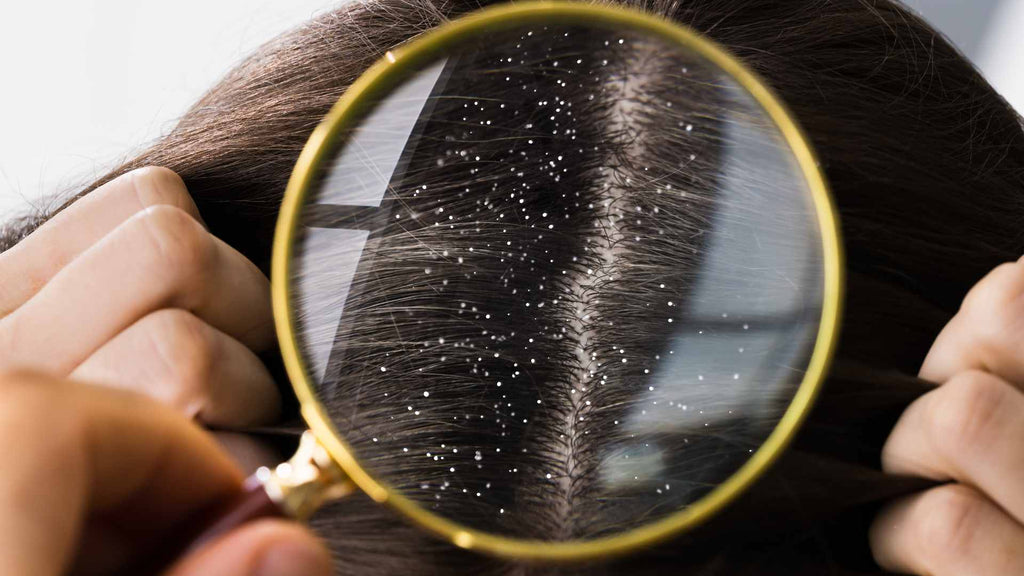
Additionally, certain skin conditions like seborrheic dermatitis and scalp psoriasis can cause inflammation and irritation.
What do all of these conditions have in common? They can all lead to an itchy head.
Given the various options above, identifying the specific cause of your scalp itching is crucial. It is necessary for effectively addressing the issue and promoting scalp health.
Understanding Hair Growth and Scalp Itchiness
The health of your scalp directly influences hair growth.
Each hair follicle is part of the skin and hair follicles system. They go through cycles of growth, rest, and shedding. Itchy scalp sensations can arise from various non-growth-related factors.
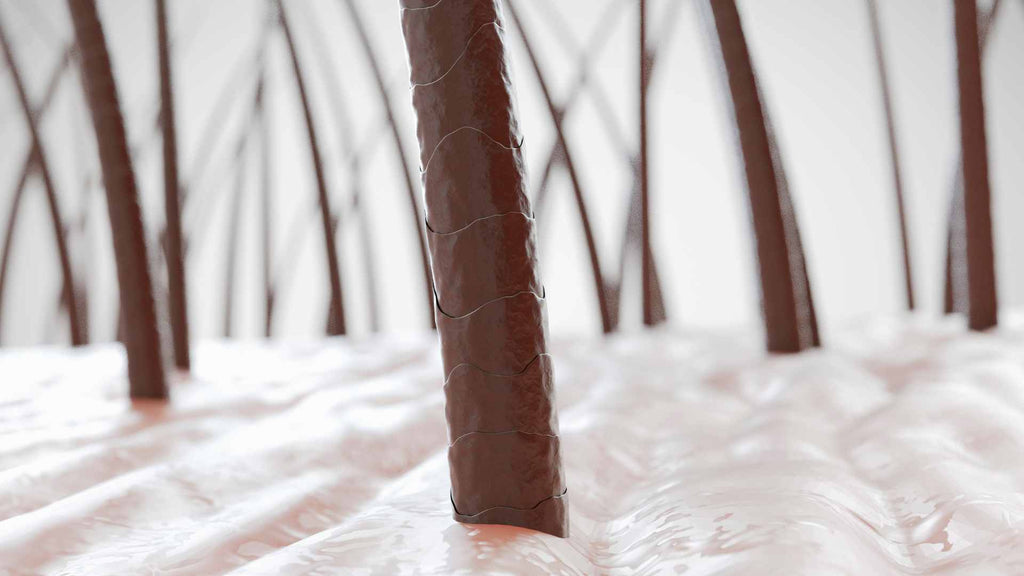
These factors include skin conditions or the natural stretching of the scalp. This stretching accommodates changes in hair density.
Importantly, the process of hair piercing through the skin is not typically a cause of itchiness.
Instead, factors like scalp health, hormonal changes, and environmental conditions play a more significant role. They can directly affect hair growth and its associated sensations.
The Psychology Behind the Itch and Hair Growth Perception
The uncomfortable sensation of an itchy scalp can have psychological effects on individuals. This is especially true of those experiencing hair loss.
Many people associate scalp itchiness with new hair growth, hoping it's a sign of regrowth. This perception is influenced by the desire to find a positive outcome in the face of hair loss.
The tingling sensation that often accompanies this itching can create a sense of anticipation for hair growth. However, it's important to separate the psychological perception from the actual physiological process of hair growth.
To properly understand if an itchy scalp means hair is growing requires this distinction. The truth is, scalp itchiness does not always mean there will be hair growth. It should be addressed based on its underlying causes rather than assumptions about hair regrowth.
Debunking Myths: Itchy Scalp and Hair Growth
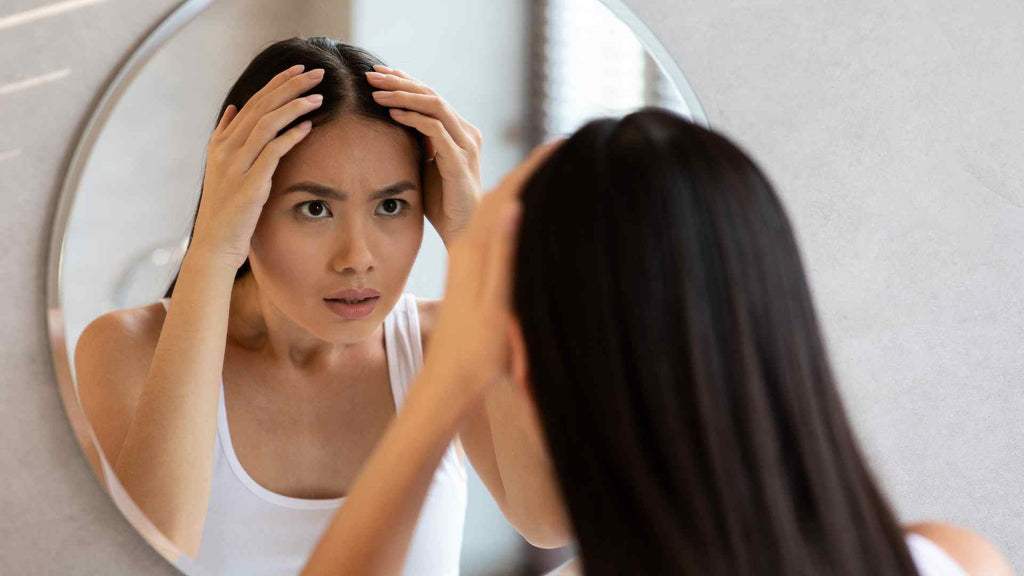
The Truth About Hair Growth and Scalp Sensations
Hair growth is a complex physiological process. It is influenced by various factors, including genetics, hormones, and overall scalp health.
The primary focus should be on maintaining a healthy scalp environment. This means using appropriate hair products and treatments. This is best way to support both scalp heath and hair growth.
For the best advice, it's important to consult with a specialist.
Expert Insights on Scalp Health and Hair Follicle Activity
When it comes to understanding scalp health and hair follicle activity, it's important to seek expert insights.
Dermatologists and hair loss specialists are key sources of valuable information. They have the skills and tools to diagnose these conditions and provide the best treatment options.
They can also recommend the best products for hair care and treatments based on your specific scalp type.
Identifying Signs of New Hair Growth
If you're hoping for new hair on your itchy head, all is not lost!
While an itchy scalp in and of itself does not necessarily indicate new hair growth, there are certain signs that fresh locks are on the way.
These signs include:
- The appearance of short new hairs. These are often finer in texture than the existing hair strands. These new hairs can be seen in areas where hair has been thinning. They can also be seen where temporary hair loss has occurred.
- A soft texture to new strands. This change indicates the rejuvenation of hair follicles and the initial phase of hair regrowth, which may eventually blend with the overall hair texture.
- The presence of baby hairs around the hairline. These fine hairs are an indication that the hair follicles are active and beginning to produce new growth.
- General changes in scalp feel. These can include increased sensitivity or a noticeable difference in texture, signaling an alteration in the skin's condition. This might be due to the scalp becoming healthier with improved blood circulation, or it could indicate the beginning stages of new hair growth as the follicles become more active.
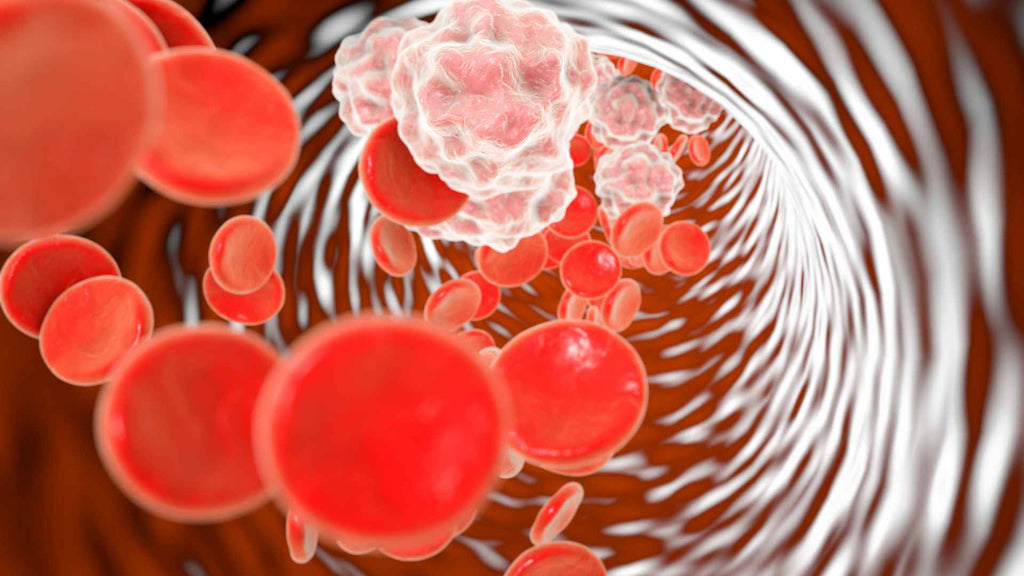
While it's important to differentiate between new hair growth and scalp irritation, recognizing these signs can be encouraging for individuals concerned about hair loss or undergoing hair growth treatments.
Consulting with a dermatologist or hair loss specialist can provide further insights. They can offer guidance on recognizing and promoting new hair growth.
What Do Dark Spots on an Itchy Scalp Mean?
Dark spots on the scalp can understandably be concerning. Yet there is a wide variety of causes, ranging from minor issues to more serious conditions.
Understanding these potential causes is essential for proper diagnosis and treatment. Here's a look into some of the possible reasons for dark spots on the scalp:
-
Post-Inflammatory Hyperpigmentation (PIH): This occurs when areas of the skin become darker following inflammation. Conditions like eczema, psoriasis, or severe dandruff can lead to scalp inflammation, which upon healing might leave behind dark spots.
-
Folliculitis: This is an inflammation of the hair follicles, often caused by a bacterial or fungal infection. It can lead to red, swollen patches that may turn into dark spots as they heal, especially if the inflammation was severe or recurrent.
-
Seborrheic Dermatitis: A more severe form of dandruff, seborrheic dermatitis can cause red, scaly patches on the scalp. Over time, these areas might darken, especially in individuals with darker skin tones.
-
Acne Necrotica Miliaris: A rare condition that affects the scalp, causing pustules that can leave behind dark spots or scars after they heal.
-
Melanoma: While less common, it's important to consider melanoma, a type of skin cancer, as a potential cause of dark spots on the scalp. Melanoma can appear as a new dark spot or an existing mole that changes in size, shape, or color.
-
Tinea Capitis (Scalp Ringworm): This fungal infection can lead to scaly patches and hair loss. As the infection clears, especially if it has been intense or prolonged, it may leave behind pigmentation changes.
-
Lichen Planopilaris: A type of lichen planus affecting the scalp, this condition can lead to patchy hair loss and may leave dark spots where inflammation was present.
-
Acanthosis Nigricans: Though more common on the neck and in body folds, acanthosis nigricans can affect the scalp in rare cases, leading to velvety, darkened areas of skin.
-
Hormonal Changes and Medications: Hormonal imbalances and certain medications can lead to hyperpigmentation, including on the scalp.
-
Sun Exposure: Prolonged sun exposure without adequate protection can lead to sunspots or solar lentigines on the scalp, especially in balding areas or where the hair is thin.

Identifying the underlying cause of dark spots on the scalp often requires a thorough examination by a dermatologist or healthcare professional. They may perform a visual inspection, take a medical history, and possibly conduct tests such as skin biopsies or cultures to determine the exact cause and appropriate treatment.
You have have noticed a pattern in this article: Proper diagnosis is crucial.
Treatments vary significantly depending on the underlying condition, ranging from medicated shampoos and topical creams to more specific medications and interventions. Understanding the nature of the condition is the first and most important step in solving it.
Effective Strategies to Soothe an Itchy Scalp
If you're dealing with an itchy scalp, there are several effective strategies you can employ. These include using gentle hair care products and incorporating natural remedies.
Essential oils are one such remedy. Also, practicing proper scalp hygiene is crucial for treating hair loss. Addressing the root causes of an itchy scalp is important.
Promoting scalp health can alleviate discomfort. It also supports optimal hair growth. By adopting these effective strategies, you can maintain a healthy scalp environment. This will minimize scalp itchiness for healthier hair.
The role of hydration and nutrition in scalp health
Hydration and nutrition play a vital role in maintaining scalp health. Proper hydration helps to keep the scalp moisturized and prevents dryness, which can lead to itchiness and flaking. It is important to drink plenty of water throughout the day to support overall skin and scalp health, which can prevent an itchy scalp and associated hair loss.
Additionally, a balanced diet rich in essential nutrients, including vitamins and minerals, is crucial for promoting scalp health. Nutrient deficiencies can contribute to scalp issues such as dryness and dandruff. Incorporating foods that are rich in omega-3 fatty acids, vitamins, and minerals can help support scalp health and minimize scalp itchiness.
By prioritizing hydration and nutrition, you can maintain a healthy scalp environment and promote optimal hair growth.
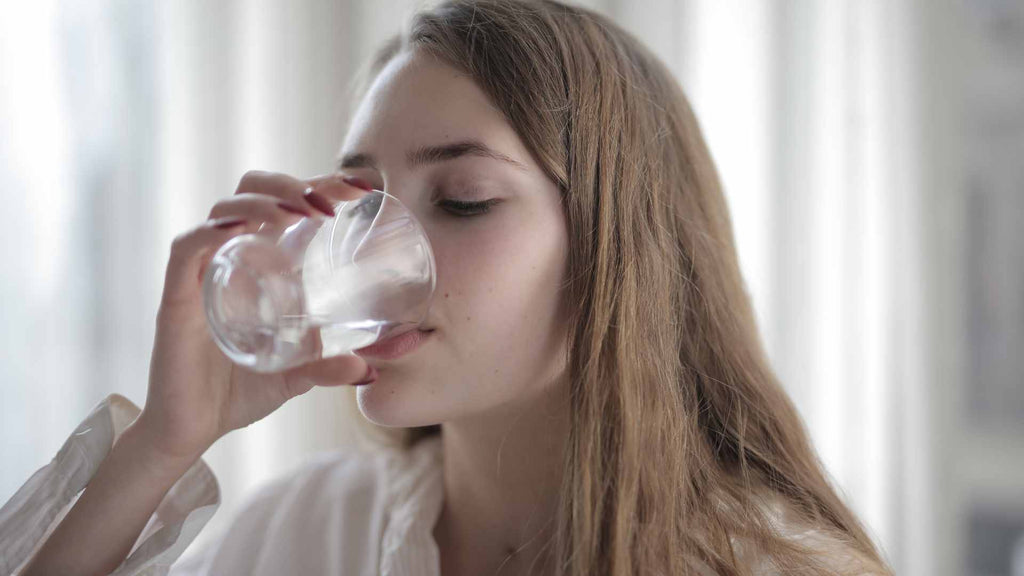
Hydration is crucial not only for overall health but specifically for maintaining a healthy scalp and supporting hair growth. Adequate water intake ensures that the scalp remains moisturized from the inside out, reducing the chances of dryness and irritation. Incorporating foods with high water content and reducing dehydrating beverages can significantly improve scalp condition and, by extension, hair health.
Selecting the right hair care products for your scalp type
Selecting the right hair care products for your specific scalp type is essential for maintaining scalp health and minimizing itchiness. It is important to choose shampoos and conditioners formulated for sensitive skin or specific scalp conditions.
These products often contain active ingredients that can help address scalp issues and promote scalp health. Understanding your scalp type and any specific concerns, such as dandruff or dryness, can guide you in selecting the appropriate hair care products.
Additionally, it is important to read product labels and avoid ingredients that may cause irritation or allergic reactions, contributing to scalp discomfort.
Just as there are different types of hair loss, there are different types of hair products.
By selecting the right hair care products for your scalp type, you can effectively manage scalp itchiness and promote a healthier scalp environment.
Home remedies and natural solutions for scalp relief
In addition to using gentle hair care products, there are several home remedies and natural solutions that can provide relief from scalp itchiness. These remedies often utilize natural oils and ingredients known for their soothing and moisturizing properties. Some effective home remedies and natural solutions for scalp relief include:
- Tea tree oil: Known for its antifungal and anti-inflammatory properties, tea tree oil can help alleviate scalp itchiness caused by dandruff or fungal infections.
- Natural oils: Coconut oil, jojoba oil, and olive oil are all known for their moisturizing and soothing properties. Applying these oils to the scalp can provide relief from itchiness and promote a healthy scalp environment.
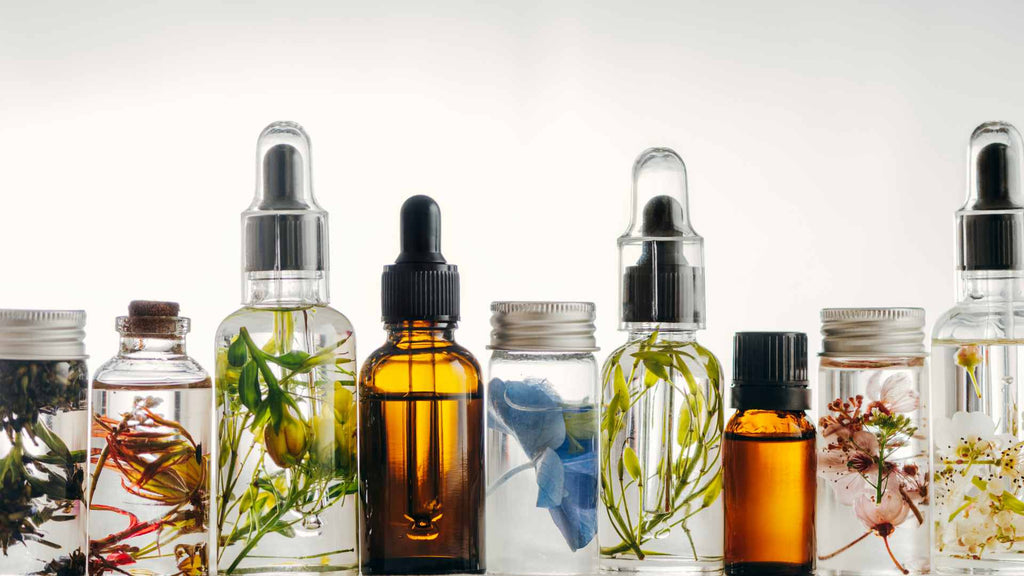
- Apple cider vinegar: Diluted apple cider vinegar can help balance the pH of the scalp and reduce itchiness caused by conditions like dandruff or dry scalp.
- Aloe vera: The gel from the aloe vera plant has cooling and soothing properties that can provide relief from scalp itchiness and inflammation and prevent an itchy scalp often associated with hair loss.
By incorporating these home remedies and natural solutions into your scalp care routine, you can effectively manage scalp itchiness and promote optimal scalp health.
Introducing Dermeleve®: A Safer Alternative
Dermeleve® is a revolutionary product that offers a safer alternative to traditional topical steroids for soothing an itchy scalp and may help in conditions that cause temporary hair loss. Unlike topical steroids, which can have negative side effects and long-term risks, Dermeleve® is formulated with safe and effective ingredients that don't irritate the scalp or lead to hair loss.
It provides relief from scalp itchiness and promotes scalp health without the potential risks associated with traditional topical steroids, addressing conditions that can cause hair loss.
Dermeleve® is specially designed to nourish and rejuvenate the scalp, offering the care and relief needed for optimal hair growth.
By choosing Dermeleve®, individuals can find long-lasting scalp relief and support a healthy scalp environment.
Practical Tips: What It Means To Maintain a Healthy Scalp
Maintaining a healthy scalp is essential for minimizing scalp itchiness and promoting optimal hair growth. By incorporating these practical tips into your daily routine, you can support scalp health and prevent scalp issues:
- Practice good scalp hygiene by washing your hair regularly with a gentle shampoo and conditioner.
- Avoid over-washing your hair, as this can strip the scalp of its natural oils and lead to dryness and itchiness.
- Use lukewarm water when washing your hair to prevent drying out the scalp.
- Choose hair care products that are formulated for your specific scalp type and avoid harsh chemicals.
- Stay hydrated by drinking plenty of water throughout the day to maintain overall skin and scalp health.
- Incorporate a scalp massage into your self-care routine to improve blood circulation and distribute natural oils.
By following these practical tips, you can maintain a healthy scalp environment and minimize scalp itchiness for healthier hair.
Daily habits to prevent scalp itching and irritation
In addition to maintaining scalp hygiene and incorporating gentle hair care products, there are daily habits that can help prevent scalp itching and irritation. These habits include:

- Avoid using excessive styling products that can build up on the scalp and irritate it.
- Limit the use of heat styling tools, as excessive heat can dry out the scalp and lead to itchiness.
- Protect your scalp from harsh environmental conditions, such as extreme heat or cold, by wearing appropriate head coverings.
- Avoid scratching or picking at the scalp, as this can further irritate the skin and lead to more itchiness.
- Practice stress management techniques, as stress can exacerbate scalp itching and irritation.
By adopting these daily habits, you can support a healthy scalp environment, minimize scalp itching and irritation, and prevent conditions that could lead to hair loss.
When to see a dermatologist for persistent scalp issues
While many scalp conditions can be managed with over-the-counter treatments and home remedies, certain symptoms necessitate professional evaluation.
If you experience persistent redness, severe itching that interferes with daily activities, hair loss in patches, or scalp sores, it's time to consult a dermatologist. These specialists can perform diagnostic tests, such as scalp biopsies or blood tests, to pinpoint the exact cause of your symptoms, such as conditions that cause hair loss, and recommend tailored treatments.
Early intervention can prevent conditions from worsening and pave the way for effective management and healthier hair growth.
Nourishing Your Scalp from Within
Nourishing your scalp from within is an important aspect of promoting scalp health and hair growth.
The food you eat plays a significant role in providing essential nutrients for optimal scalp nourishment. A balanced diet rich in vitamins, minerals, and omega-3 fatty acids can support scalp health and minimize
Vitamins and supplements for a healthier scalp
In addition to a balanced diet, certain vitamins and supplements can support hair and scalp health. They can aid in alleviating an itchy scalp and promoting optimal hair growth.
Incorporating hair growth supplements or vitamins, such as biotin or vitamin E, can further support scalp nourishment and stimulate hair growth. Vitamin A, vitamin C, biotin, and zinc are also particularly important for scalp health and hair growth. Including foods such as leafy greens, citrus fruits, eggs, nuts, and seeds in your diet can help promote scalp health and minimize scalp issues such as itchiness and dryness, potentially preventing hair thinning.
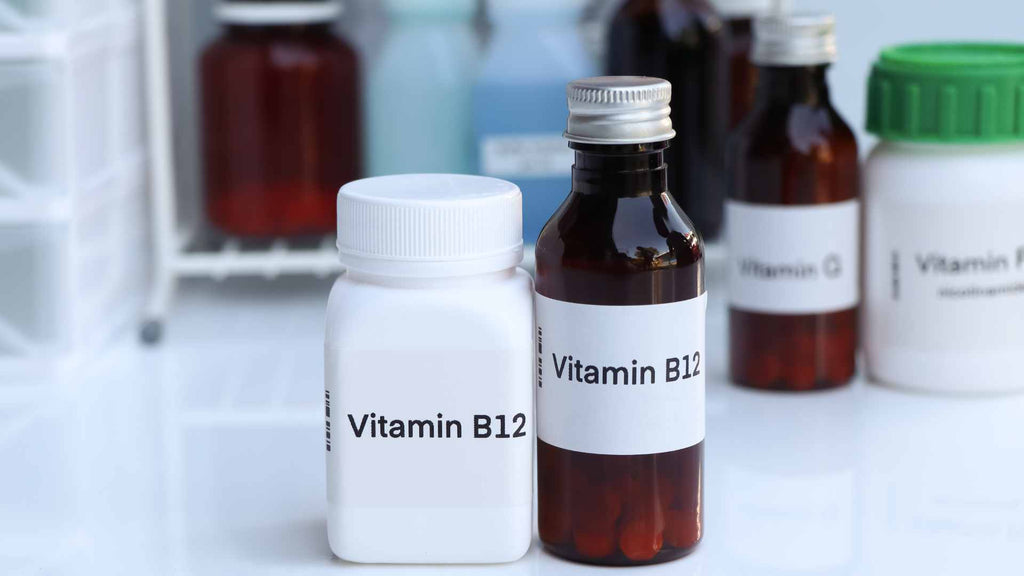
These vitamins and supplements can provide the necessary nutrients that may be lacking in your diet. Here are some additional vitamins and supplements that are beneficial for a healthier scalp:
- Biotin: Biotin is a B-vitamin that is essential for healthy hair growth. It helps strengthen the hair follicles and promotes optimal scalp health.
- Vitamin D: Vitamin D plays a role in hair follicle cycling and can help support healthy hair growth.
- Omega-3 fatty acids: Omega-3 fatty acids, found in fish oil supplements, can help reduce inflammation and promote scalp health.
- Iron: Iron deficiency can contribute to hair loss and scalp issues. Taking an iron supplement can help support healthy hair growth and prevent conditions that irritate the scalp and lead to hair loss.
It is important to consult with a healthcare professional before starting any new vitamins or supplements to ensure they are appropriate for your individual needs. By incorporating these vitamins and supplements into your routine, you can support scalp health and promote optimal hair growth.
Conclusion
It's crucial to understand that an itchy scalp doesn't always signify hair growth. Various factors, including scalp ringworm, can lead to scalp itchiness, and addressing the root cause is key to maintaining a healthy scalp. While myths may circulate, seeking expert advice can provide clarity on scalp health and hair regeneration.
Hydrating your scalp, choosing suitable hair care products, and incorporating a balanced diet can promote scalp well-being. Remember to listen to your scalp's needs and consider seeking professional guidance for persistent issues. Prioritizing scalp health contributes to overall hair vitality and comfort. Your scalp deserves the best care for optimal well-being.
And there you have it, folks – the long and short (hairs) of what an itchy scalp really means.
Remember, while scratching your head in wonder, the key to unlocking the secrets of hair growth isn't found at your fingertips but in the care you give your scalp.
And speaking of care, have you tried Dermeleve®? It’s like the superhero your scalp’s been waiting for – swooping in to soothe the itch without the drama of side effects.
So, are you ready to give your scalp the TLC it deserves and maybe write your own hair-raising success story?
Frequently Asked Questions
Can an itchy scalp be a sign of hair growth?
An itchy scalp is not necessarily a sign of hair growth. Itchy scalp can be caused by various factors, including scalp conditions, scalp irritation, or environmental factors that cause an itchy scalp. It is important to address the underlying causes of scalp itchiness rather than assuming it is a sign of new hair growth.
How can I tell if my itchy scalp is due to new hair growth or another issue?
Differentiating between scalp itchiness due to new hair growth and other issues can be challenging. Consulting with a dermatologist or hair loss specialist can help accurately diagnose the underlying cause of your scalp itchiness, provide guidance on managing the issue effectively, and address concerns related to an itchy scalp and hair loss.
What are the best practices for managing an itchy scalp?
Some best practices for managing an itchy scalp include using gentle hair care products, practicing proper scalp hygiene, and incorporating natural remedies. It is also important to address the underlying causes of scalp itchiness and seek professional help if needed.
Is it safe to use Dermeleve® for long-term scalp care?
Dermeleve® is formulated with safe and effective ingredients for long-term scalp care. It is designed to provide relief from scalp itchiness and promote scalp health without the potential risks associated with traditional topical steroids. It is safe for everyday use.
When should I consult a professional about my itchy scalp?
If you are experiencing persistent or severe scalp itchiness despite home remedies and over-the-counter treatments, or if you suspect an underlying skin condition, it is advisable to consult with a dermatologist or hair loss specialist for professional advice and targeted treatment options.




